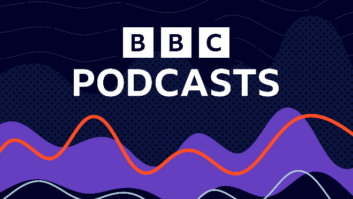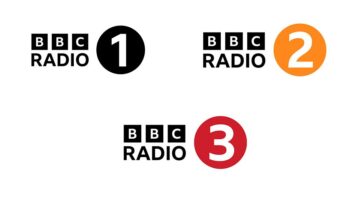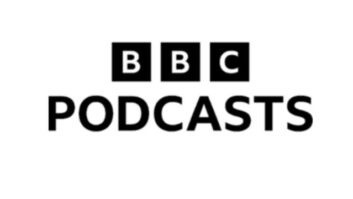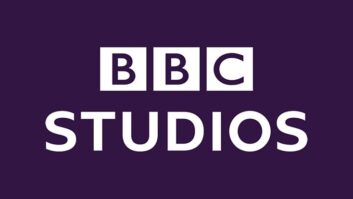OTTAWA — Nothing less than “a Netflix of the spoken word”: That is what BBC Director-General Lord Tony Hall promised on Nov. 23, 2016, when he announced the BBC’s plans to offer its full archive of audio content to online listeners around the world.

Andy Sennitt is a retired Radio Netherlands Worldwide strategic advisor.
Photo courtesy of Andy Sennitt “The BBC makes the best radio in the world … and we have an extraordinary wealth of audio riches at our disposal,” said Lord Hall during his keynote address to the Voice of the Listener and Viewer Autumn Conference in London.
“With our world-class content, we could use our current output and the richness of our archive to create a Netflix of the spoken word. It’s one of the things that will help the BBC carry the full weight of Britain’s culture and values, knowledge and know-how to the world in the years ahead — and say something really important about modern Britain.”
At the same time, after years of retreat and retrenchment, the BBC World Service has announced plans to broadcast daily news programs to North Korea via shortwave and medium wave (AM) radio. Using UK£289 million in funding provided by the United Kingdom government, the BBC World Service will also expand its TV news and online content for Russia, plus add 10 more languages to the BBC World Service’s roster of multilingual content.
“As we move toward our centenary (in 2022), my vision is of a confident, outward-looking BBC, which brings the best of our independent, impartial journalism and world-class entertainment to half a billion people around the world,” said Lord Hall. (Note: The BBC World Service does not reach this many people at present — 500 million is a corporate goal.)
PAID ACCESS

Kerri Hoffman is CEO of PRX.
Credit: PRX Lord Hall’s invocation of Netflix as a model for global distribution of BBC’s famed radio archive immediately caught the attention of online and radio industry players. To them, invoking Netflix suggests that the BBC wants online users to pay to access this content; just as Netflix subscribers pay to access this provider’s TV shows and movies. If not, Lord Hall’s comment doesn’t make much sense, given that the BBC is already providing free access to much of its audio content online today.
One clue to the BBC’s intentions: In partnership with ITV, the BBC is launching a pay-for-access, Netflix-style online TV service called BritBox. It will go live for paying customers sometime in 2017.
If the BBC is serious about copying Netflix in setting up a pay-for-access service, they will need deep pockets to do so. To establish itself on multiple distribution platforms globally, “Netflix has raised approximately US$200 million in financing,” said CEO Kerri Hoffman of Public Radio Exchange (PRX), a public media company that distributes and creates radio shows and podcasts. And this is far from Netflix’s only source of cash to fund programming, distribution, and management. “They have a mature revenue stream that brings in over $5 billion dollars each year,” said Hoffman. To succeed using the Netflix model, “can the BBC make the significant technical investment to maintain, adapt, and grow platforms?” she asks.
WRMI General Manager Jeff White is similarly sceptical. (WRMI is a privately owned international shortwave radio broadcaster located in Okeechobee, Florida.) “As far as the BBC’s ‘Audio Netflix’ plan, my question is whether international listeners would have to pay a fee to access it, like with Netflix,” said White. “If so, I really wonder whether it would be very successful. If it’s free, more power to them.”
At this point, the BBC’s own intentions are unclear. “Work is at the early stages, and the BBC expects to say more in the spring,” said the BBC Press Office in response to an enquiry from Radio World International.
BUCKING THE TREND

BBC already serves a lot of free content on its iPlayer web page.
Credit: BBC The BBC World Service’s plans to broadcast radio news into North Korea, expand its multiplatform Russian service, and add 10 more languages, is a startling contrast to the decades of service contraction and outright cancellation suffered by cash-poor international broadcasters worldwide.
Perhaps the most surprising aspect of the BBC World Service’s plans is its use of shortwave and medium wave radio to reach North Korean audiences, as well as shortwave to reach new listeners in Ethiopian and Eritrea; among others.
According to Adrian Van Klaveren, the BBC’s head of Strategic Change & Portfolio Management, the choice of transition medium is based on what stands the best chance of serving the target audience. “In North Korea, some SW and MW receivers are available to the people that we are trying to reach,” he said. (These are usually black market radios; receivers sold by state-approved stores are fixed-band and only able to hear North Korean stations.) “In Ethiopia and Eritrea, low-cost SW receivers are widely-used, while TV and the internet are not.”
Will the BBC World Service get through to the media-deprived populace in North Korea? Not likely, said retired Radio Netherlands Worldwide strategic advisor Andy Sennitt. But numbers don’t matter. “It’s really only the ‘elite’ in Pyongyang who the BBC needs to reach, because that’s where all the decisions are made,” Sennitt said. In a bid to influence this elite, “there are already several independent stations in South Korea broadcasting on shortwave to the North,” he noted.
Given how deliberately isolated North Korea is from the outside world, is it worth the BBC’s money to broadcast to this group? Voice of America audience research analyst Kim Andrew Elliott believes that it is.
“North Korean elites have better access to the shortwave radios, and perhaps even to the internet, to facilitate their access to the BBC Korean Service,” said Elliott, stressing that he is speaking for himself and not the VoA. “Even if small in number, this elite audience is important given the possibility of crises on the Korean peninsula. This elite audience is probably aware of the BBC’s reputation for objectivity and may turn to the BBC as a means to verify information, or the lack thereof, from North Korean domestic media.”
At a time when most state-run broadcasters are reducing their coverage and content, the BBC’s plans for its own audio Netflix and expanded World Service are a welcome exception to this industry trend.
Put together with its current multiplatform distribution, plus the Beeb’s content sharing with third-party radio/TV stations, and the BBC is “the only truly global broadcaster,” said Sennitt; a title it seems likely to retain for decades to come.
James Careless reports on the industry for Radio World from Ottawa, Ontario.












